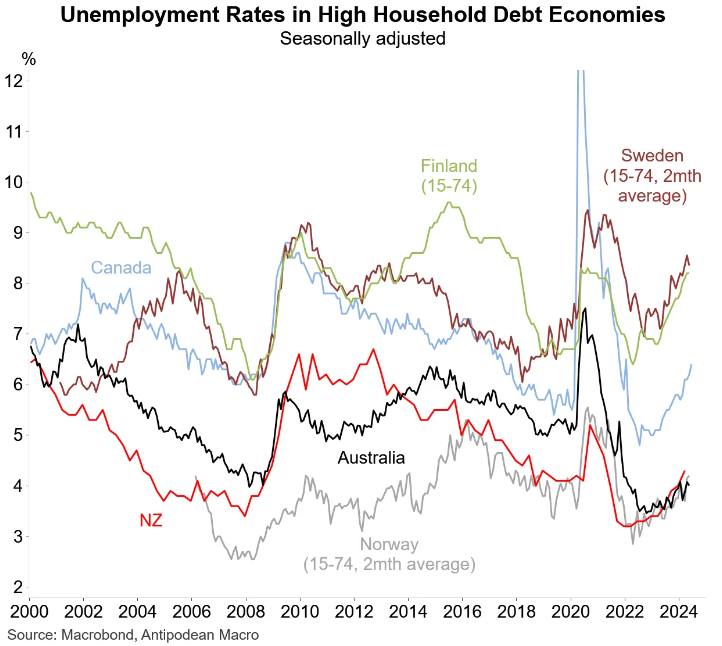The following chart from Justin Fabo at Antipodean Macro shows that Australia’s unemployment rate of 4% is especially low when compared with other high debt, high income nations:
This comes despite household consumption spending tanking and a grinding per capita recession.
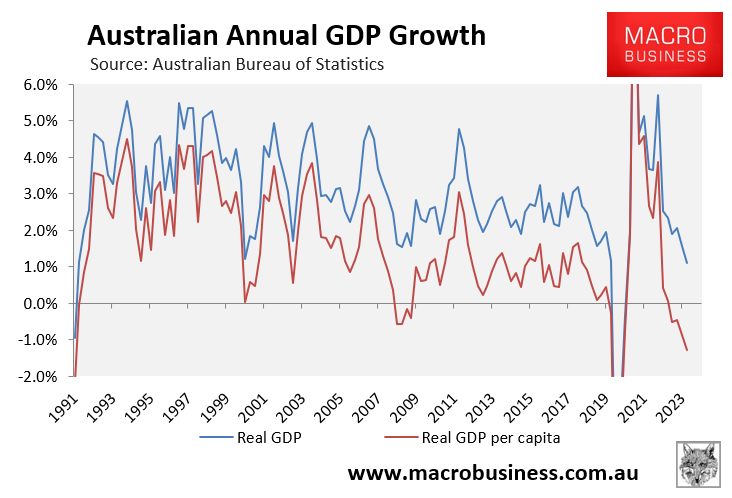
Advertisement
The major factor behind Australia’s labour market outperformance likely relates to the National Disability Insurance Scheme (NDIS).
The following chart from Mark the Graph shows that job vacancies in healthcare and social assistance related to the NDIS have exploded over the past four years:
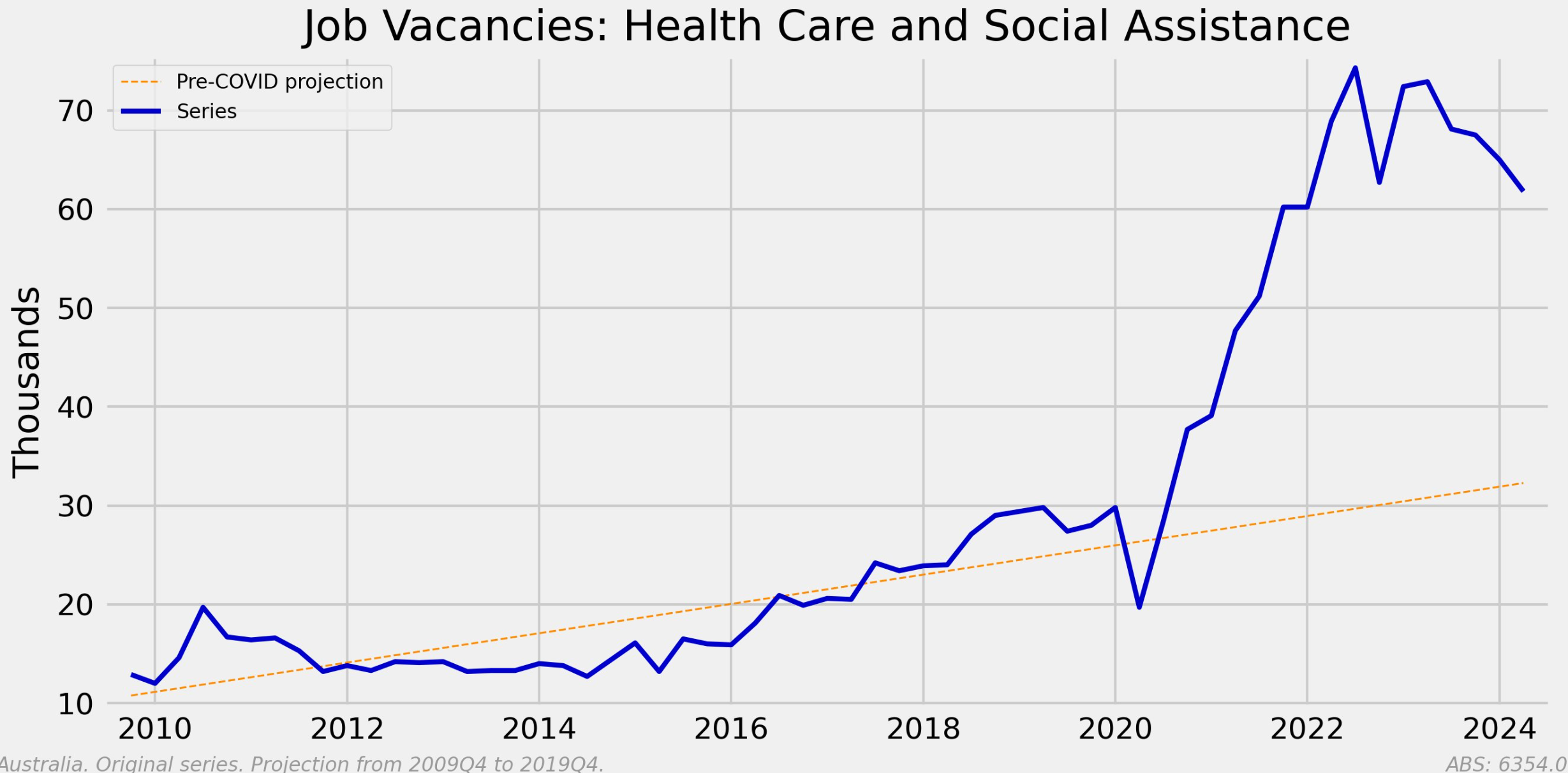
Advertisement
The next chart from CBA similarly shows that Australia has a much higher share of people working in healthcare and social assistance than other comparable developed countries:
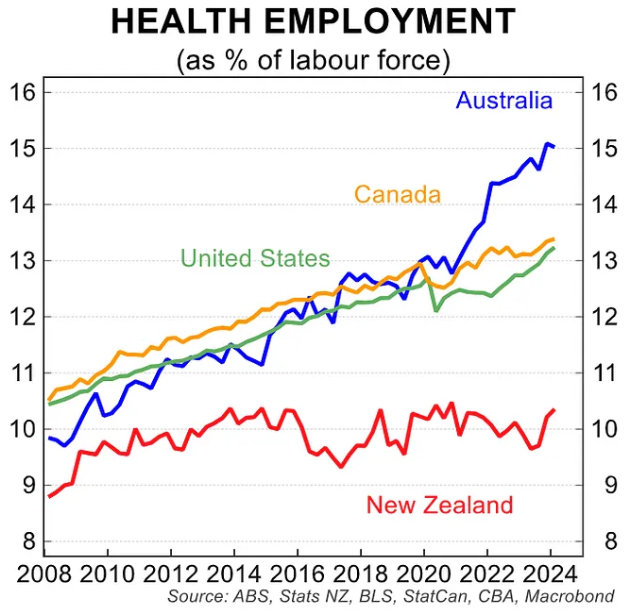
The number of jobs for personal carers and assistants in Australia has exploded, which has helped drive overall job growth:
Advertisement
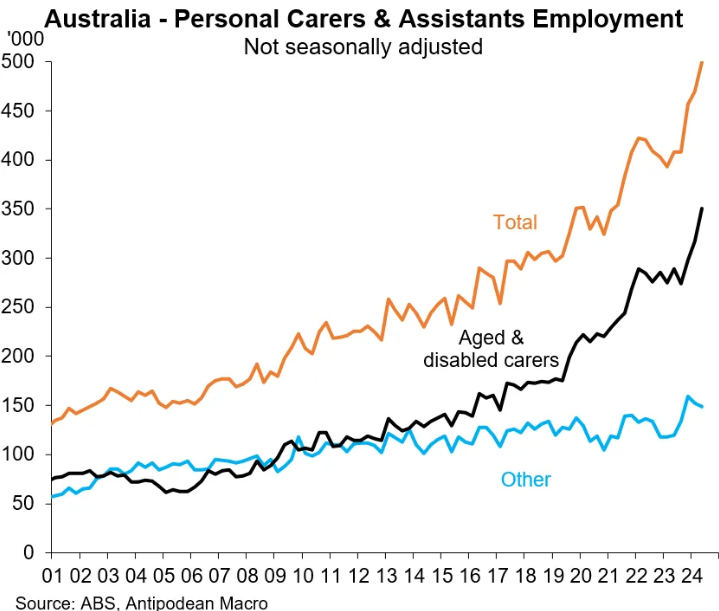
While total jobs increased by 2.2% in the year to May, jobs in the market sector have increased by only 0.3%:
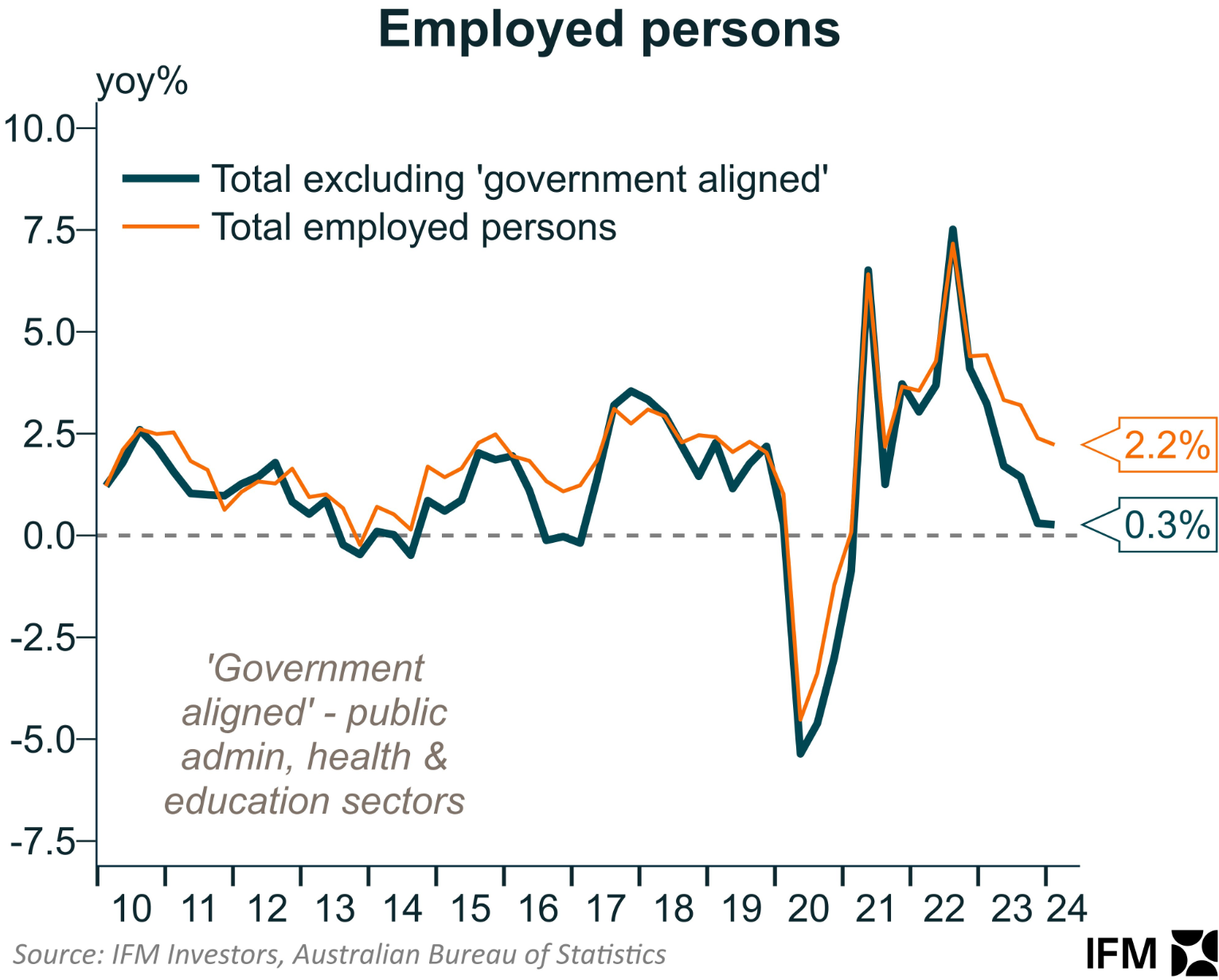
Advertisement
This suggests that almost all of Australia’s jobs growth has come from government spending, much of which is related to the NDIS.
The NDIS is also driving Australia’s GDP growth.
The following chart from Westpac shows that public demand as a share of GDP hit a record high 27.2% in the March quarter of 2024:
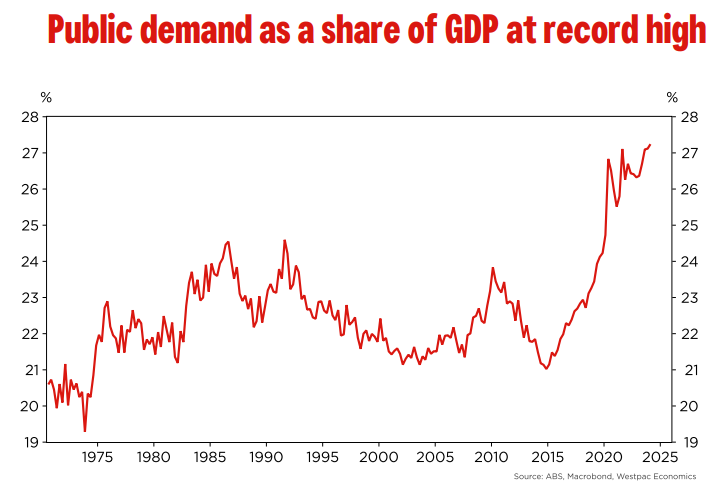
Advertisement
This reflected a combination of record infrastructure spending from the states alongside the enormous growth in the NDIS and Age Care spending from the federal government.
While the NDIS might be powering the Australian economy and keeping it out of a technical recession, it does auger badly for Australia’s productivity.
The following chart from Alex Joiner at IFM Investors shows that government-aligned jobs typically experience poor productivity growth:
Advertisement
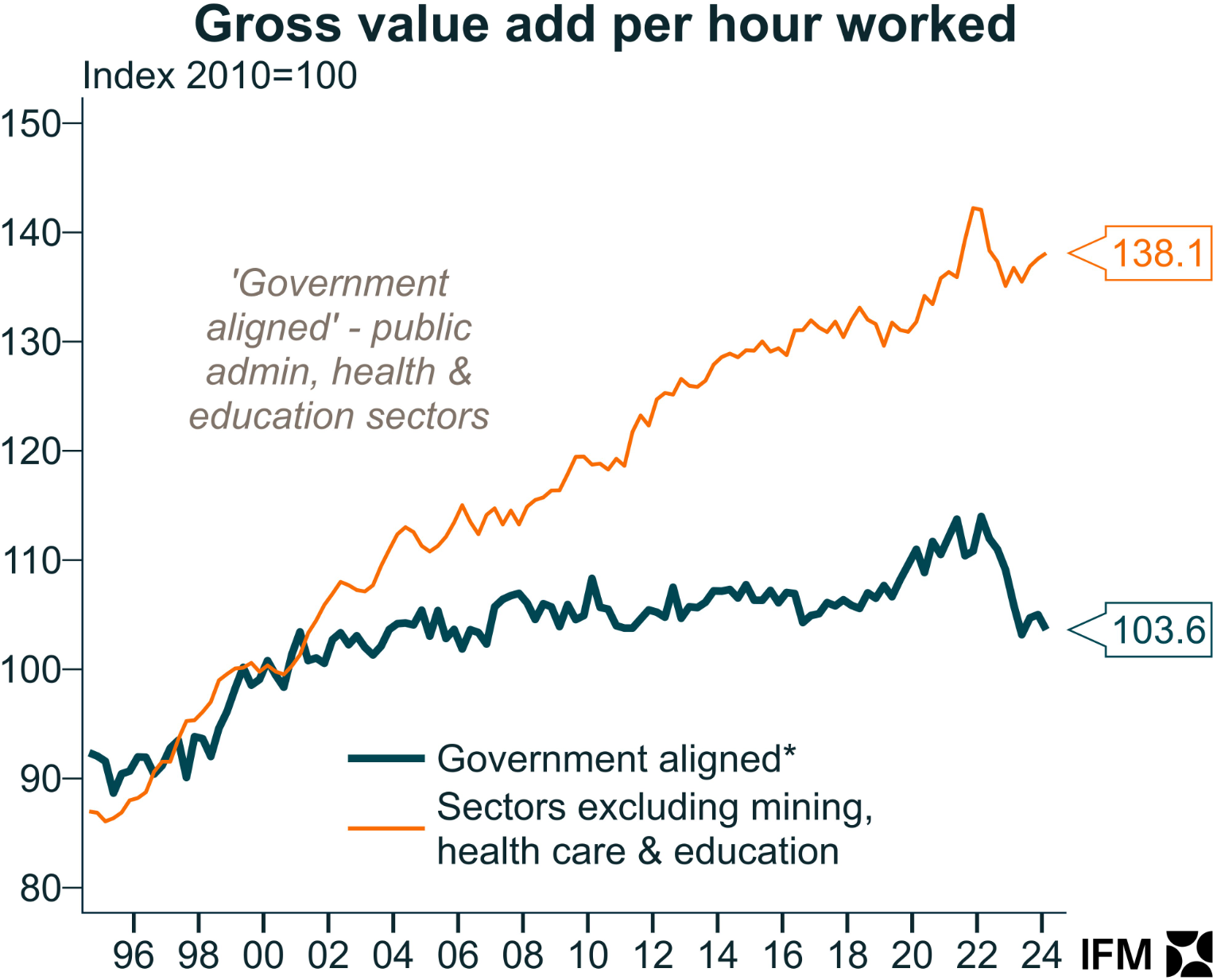
This is a concern given the NDIS is projected to take an increasingly large share of the Australian economy in coming decades.
The NIS currently costs taxpayers over $40 billion a year and the Parliamentary Budget Office projects that in around a decade, the NDIS will cost over $100 billion, – i.e., as much as the Aged Pension:
Advertisement
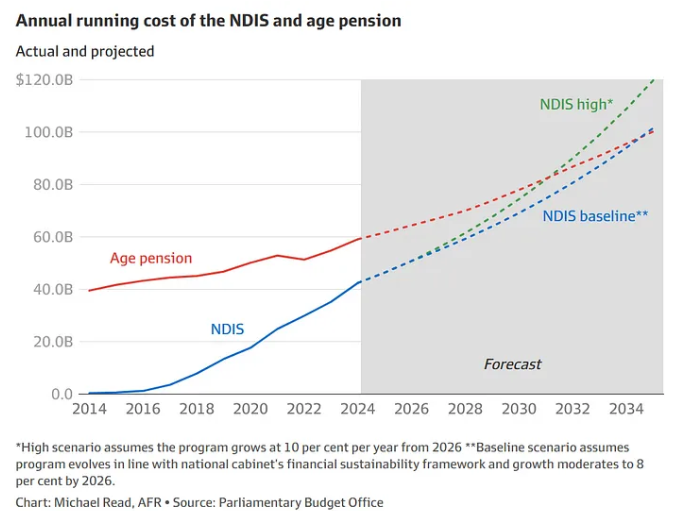
One thing that should concern everybody is that private Equity Funds and billionaires are piling into the NDIS sniffing taxpayer “rivers of gold”:

Advertisement
The NDIS has also been subject to widespread fraud and rorting by unscrupulous players.
We have seen this play out before with rorting of the private vocational education and training (VET) system, the pink batts scheme, and child care subsidies. And now the NDIS is being targeted, only on a much larger scale.
Sadly, whenever the government has set up a privatised market with an enormous pot of money, we have seen rorting, misuse, and waste.
Advertisement
The NDIS was designed to fail taxpayers.

